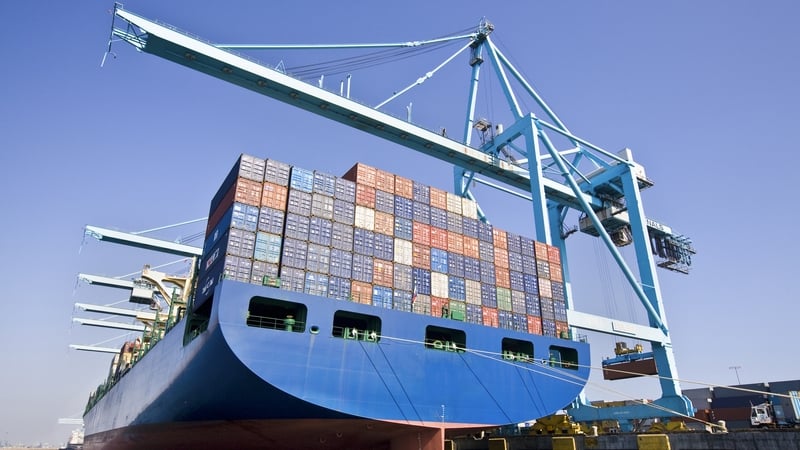Chinese Vice Premier He Lifeng said that Beijing and Washington had agreed during weekend talks in Geneva to create a “consultation mechanism”, as they strive to de-escalate trade tensions.
Speaking to reporters in Geneva, he said that the closed-door discussions with US Treasury Secretary Scott Bessent and Trade Representative Jamieson Greer resulted in agreement on “establishing a consultation mechanism”.
China’s international trade representative Li Chenggang explained the mechanism would enable “regular and irregular communications related to trade and commercial issues”.
The World Trade Organization chief hailed the “positive outcome”, calling talks “a significant step forward”.
“I urge both nations to build on this momentum by continuing to develop practical solutions that mitigate tensions, restore predictability, and strengthen confidence in the multilateral trading system,” Ngozi Okonjo-Iweala said in a statement.
The US has expressed optimism as talks with top Chinese officials continued for a second day in a bid to de-escalate trade tensions sparked by President Donald Trump’s aggressive tariff rollout.
As the two days of high-level negotiations in Geneva neared an end, US Commerce Secretary Howard Lutnick told CNN the administration was “optimistic that things will work out well”.
That comment came after Mr Trump posted on his Truth Social platform following the first day of negotiations that yesterday’s discussions had been “very good”, deeming them “a total reset negotiated in a friendly, but constructive, manner”.

China had yet to comment, but yesterday Chinese state news agency Xinhua described the talks as “an important step in promoting the resolution of the issue”.
The closed-door meetings between US Treasury Secretary Scott Bessent, Trade Representative Jamieson Greer and Chinese Vice Premier He Lifeng are taking place at the residence of the Swiss ambassador to the United Nations in Geneva.
After taking a two-hour lunch break, the delegations returned to the discrete villa with sky-blue shutters on the left bank of Lake Geneva at around 3.30pm (2.30pm Irish time), according to an AFP journalist on site.
Mr Lutnick told CNN the teams were hard at work on negotiations that are “really important” for both sides, but did not provide further detail on the contents of the talks.
Tariffs ‘lose-lose’
The discussions are the first time senior officials from the world’s two largest economies have met face-to-face to tackle the thorny topic of trade since Mr Trump slapped steep new levies on China last month, sparking a robust retaliation from China.
“These talks reflect that the current state of the trade relations with these extremely high tariffs is ultimately in the interests of neither the United States nor China,” Citigroup global chief economist Nathan Sheets told AFP, calling the tariffs a “lose-lose proposition”.
The tariffs imposed by Mr Trump on the Asian manufacturing giant since the start of the year currently total 145%, with cumulative US duties on some Chinese goods reaching a staggering 245%.
In retaliation, China put 125% tariffs on US goods.

Ahead of the meeting, Mr Trump signalled he might lower the tariffs, suggesting on social media that an “80% Tariff on China seems right!”
However, his press secretary Karoline Leavitt later clarified that the United States would not lower tariffs unilaterally, and that China would also need to make concessions.
Going into the meeting, both sides played down expectations of a major change in trade relations, with Mr Bessent underlining a focus on “de-escalation” and not a “big trade deal,” and China insisting the US must ease tariffs first.
The fact the talks are even happening “is good news for business, and for the financial markets,” said Gary Hufbauer, a senior non-resident fellow at the Peterson Institute for International Economics (PIIE).
But Mr Hufbauer cautioned he was “very sceptical that there will be any return to something like normal US-China trade relations,” with even a tariff rate of 70% to 80% still potentially halving bilateral trade.
China ‘better equipped’
China’s vice premier went into the discussions buoyed by Friday’s news that China’s exports rose last month despite the trade war.
The unexpected development was attributed by experts to a re-routing of trade to southeast Asia to mitigate US tariffs.
Among some of the more moderate Trump officials, like Mr Bessent and Mr Lutnick, “there’s a realisation that China is better equipped to deal with this trade war than the US,” said Mr Hufbauer.
The Geneva meeting comes after Mr Trump unveiled a trade agreement with the UK, the first deal with any country since he unleashed his blitz of global tariffs.

The five-page, non-binding deal confirmed to nervous investors that the US is willing to negotiate sector-specific relief from recent duties, but maintained a 10% baseline levy on most British goods.
Following the US-UK trade announcement, analysts have voiced pessimism about the likelihood negotiations will lead to any significant changes in the US-China trade relationship.
“It’s nice that they’re talking. But my expectations for the actual outcomes of this first round of talks is pretty limited,” Mr Sheets from Citigroup said.
In a post on his own Truth Social platform, Mr Trump claimed the talks had made “GREAT PROGRESS!!”.
“We want to see, for the good of both China and the US, an opening up of China to American business,” he added.




